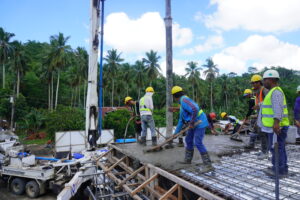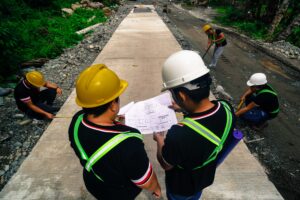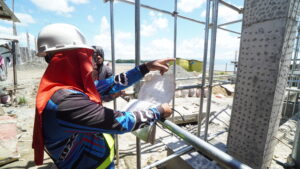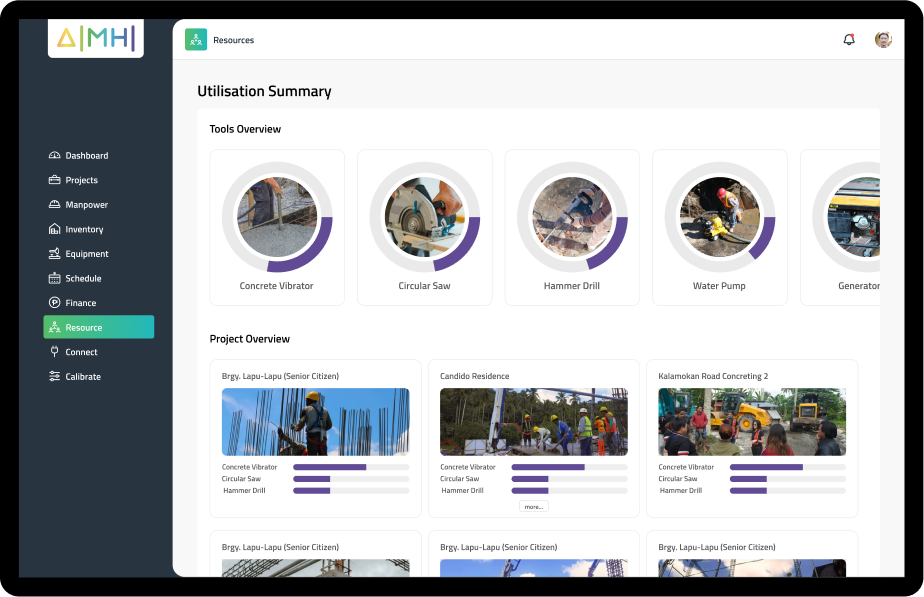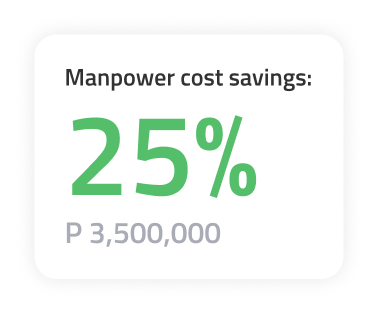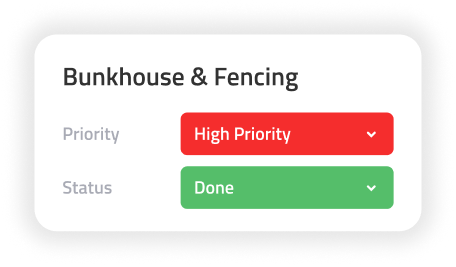The global demand for a competitive edge in modernizing project management in all phases has driven the need for change in the construction industry. This need is especially pronounced in the context of green construction, where sustainable practices and efficient resource utilization are paramount. Leveraging BIM and AI in construction can significantly contribute to achieving green building goals.
However, anything but change remains a significant challenge. This need for adoption is a finding of various studies exploring the factors driving the need for digitalization and the challenges faced by industry leaders. We dived deep into these factors and examined the most common misconceptions about construction project management software for small businesses.
Digital Divide on Construction Project Management Software Adoption Among Small Businesses
The Philippines is steadily advancing in the global project management market through technology adoption. Even then, a timely construction project completion hinges on planning, monitoring, communicating, and tracking. Without technology, it’s almost impossible to see through these tasks without significant hurdles.
Big companies already employ construction project management software and see significant results in profitability, reduced risks, and timely project completion. However, there seems to be a digital divide regarding modernizing small businesses due to the following misconceptions.
1. “We don’t need a project management tool.”
This misconception is often rooted in the belief that traditional methods, such as spreadsheets and manual processes, are sufficient for managing smaller projects. While this may be true for very simple projects, even the small ones can involve complex tasks, multiple stakeholders, and tight deadlines. A project management tool can help streamline these processes, improve efficiency, and reduce the risk of errors, helping you stay ahead of the schedule.
A construction project management software can provide features such as:
- Task management: Breaking down projects into smaller, manageable tasks and assigning them to team members.
- Scheduling: Creating and managing project schedules, including deadlines, dependencies, and resource allocation.
- Communication: Facilitating communication between project stakeholders, including team members, clients, and subcontractors.
- Document management: Storing and organizing project documents, such as plans, drawings, and contracts.
- Reporting: Generating reports on project progress, performance, and costs.
For instance, a small construction firm struggling to meet project deadlines due to miscommunication and missed deadlines can implement project management software to create clear task assignments, track progress, and ensure the timely completion of projects.
2. “The implementation would take a lot of time.”
Another common misconception is that implementing a construction project management tool is a time-consuming process. While it may require some initial setup and training, the benefits of using such a tool can far outweigh the costs.
Modern construction project management software like AIMHI is designed to be user-friendly and easy to implement. Many tools offer pre-configured templates and workflows that can be customized to fit specific project needs. Additionally, many vendors provide training and support resources to help businesses get started.
3. “It is too complex.”
Some small businesses may believe that construction project management software is too complex for their needs. However, many tools are designed to be user-friendly and intuitive, even for those with limited technical experience.
It’s important to choose a tool that is appropriate for the size and complexity of your projects. There are many options available, ranging from basic tools for small projects to more advanced solutions for large, complex projects.
4. “It’s not relevant for my business.”
This misconception is often based on a lack of understanding of the benefits that a construction project management tool can offer. As mentioned earlier, these tools can help improve efficiency, reduce risks, and improve project outcomes. They are relevant for businesses of all sizes, from small contractors to large construction firms.
More importantly, a modernized project management process can help improve customer satisfaction. You can communicate the project progress more transparently and in real-time with clients. Plus, you can keep customers informed and address their concerns promptly.
5. “It’s way too much extra cost.”
The benefits of the cost can far outweigh the initial investment when used right. Construction project management software can help even small businesses save money in the long run by improving outcomes and profitability while reducing risks.
It’s important to consider the potential costs of not using a project management tool. Risks such as project delays, cost overruns, and quality issues can be much more costly than the investment in software. Some businesses see to it they are able to mitigate these risks and improve their bottom line.
Additionally, there are many affordable options available. AIMHI project management software starts at less than ₱2,000. This makes it accessible for businesses of all sizes.
6. “Our current system is working fine.”
The current stand on “Don’t fix what isn’t broken” may eventually hinder growth and efficiency. While it may seem like things are functioning smoothly on the surface, there are often underlying issues that can be addressed with the right tools and strategies.
Here are some reasons why this statement might be misleading:
- Hidden inefficiencies: Manual processes and outdated systems can lead to hidden inefficiencies that can slow down operations and increase costs.
- Lack of scalability: As a business grows, its current system may not be able to handle the increased workload or complexity.
- Increased risk: Manual processes and outdated systems can increase the risk of errors, delays, and security breaches.
- Limited insights: Without a modern project management system, it can be difficult to gain valuable insights into project performance, resource allocation, and overall business health.
In short, construction project management software allows small businesses to grow by going beyond what is comfortable and working at the moment.
How AIMHI Can Help
AIMHI (Artificial Intelligence Meets Human Intelligence) is a cost-effective solution designed to empower small to large businesses and even startups to streamline their construction workflow.
Our platform focuses on efficiency and cost-effectiveness with AI-powered features that can:
- Simplify project estimates, reducing the time and resources needed for budgeting
- Enhance productivity monitoring, allowing you to optimize resource allocation and identify areas for improvement
- Minimize project delays and cost overruns with improved communication and task management
- Built-in risk analysis tool focused on manpower and equipment productivity
- Intelligent suggestions for material quantities for faster turnaround times, improved cost forecasting, and estimation error reduction
Wrap Up
If you have voiced out at least one of these common misconceptions, maybe it’s time to reconsider the odds. Determine if construction project management software is the right investment for you to help you scale your business.Explore how you can achieve your business goals with AIMHI and learn more about the software https://aimhi.ai/why-aimhi/.


